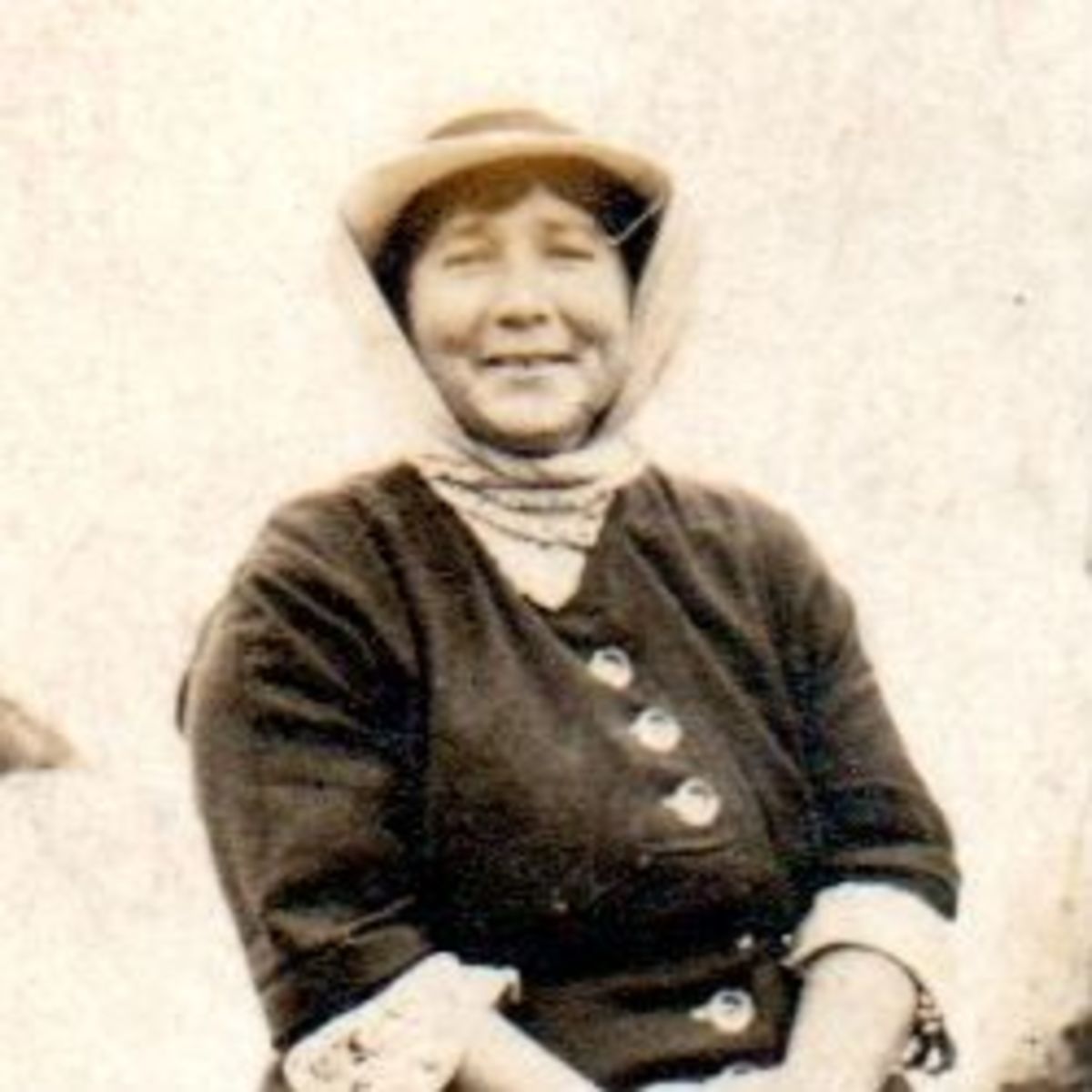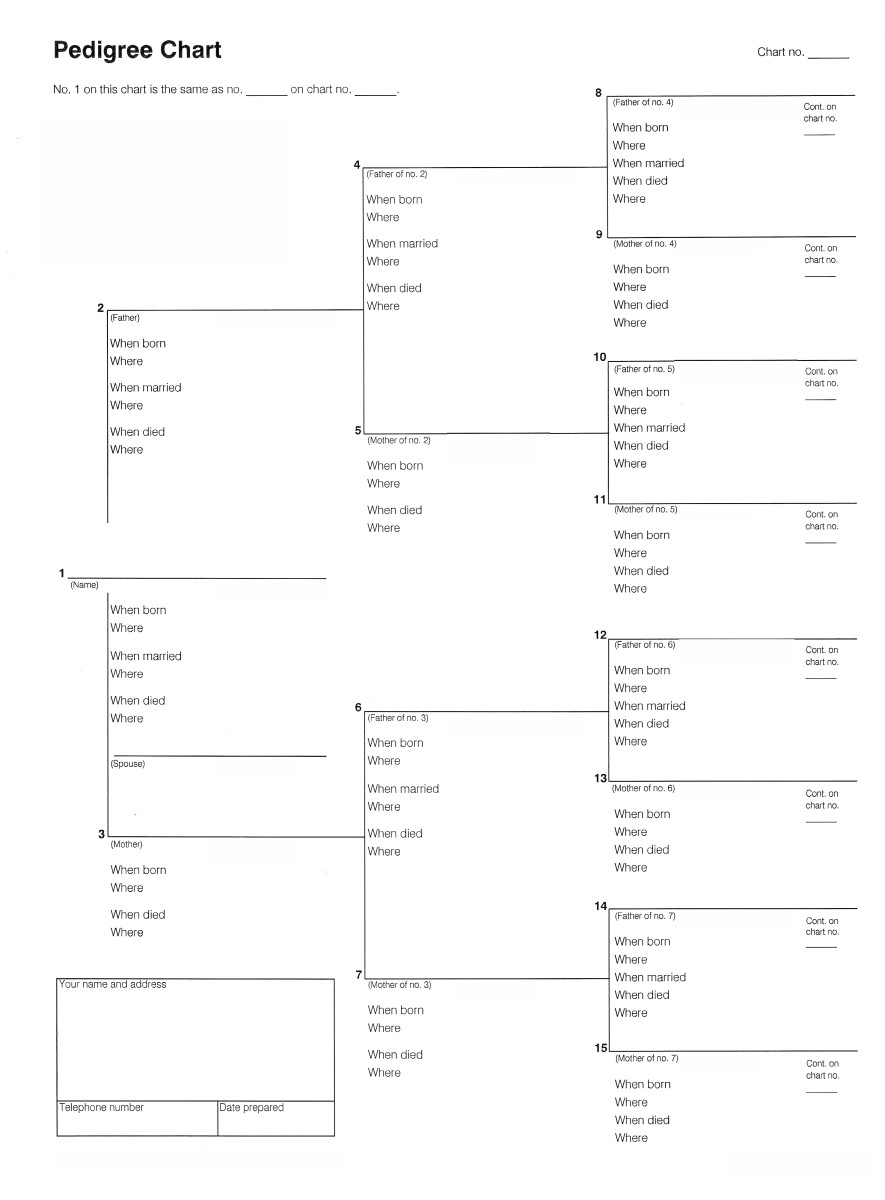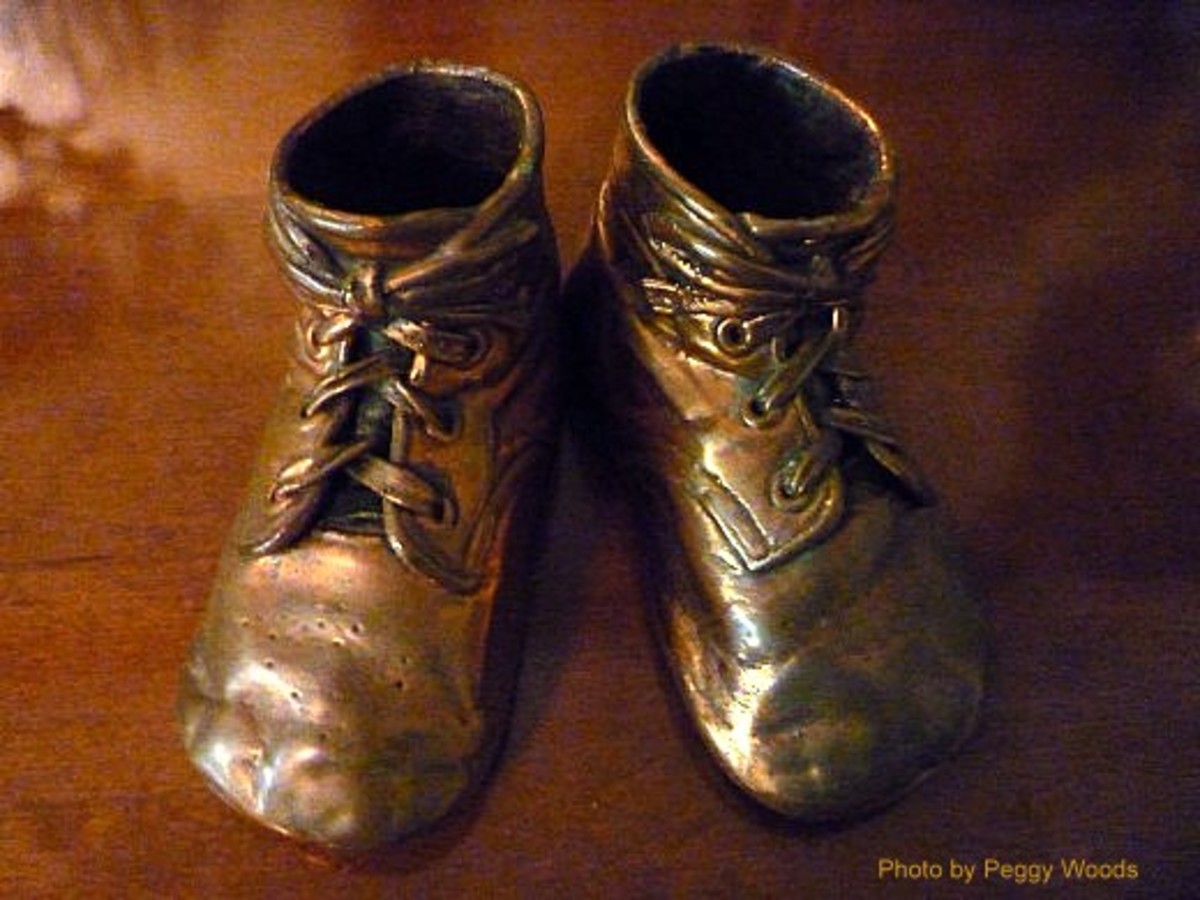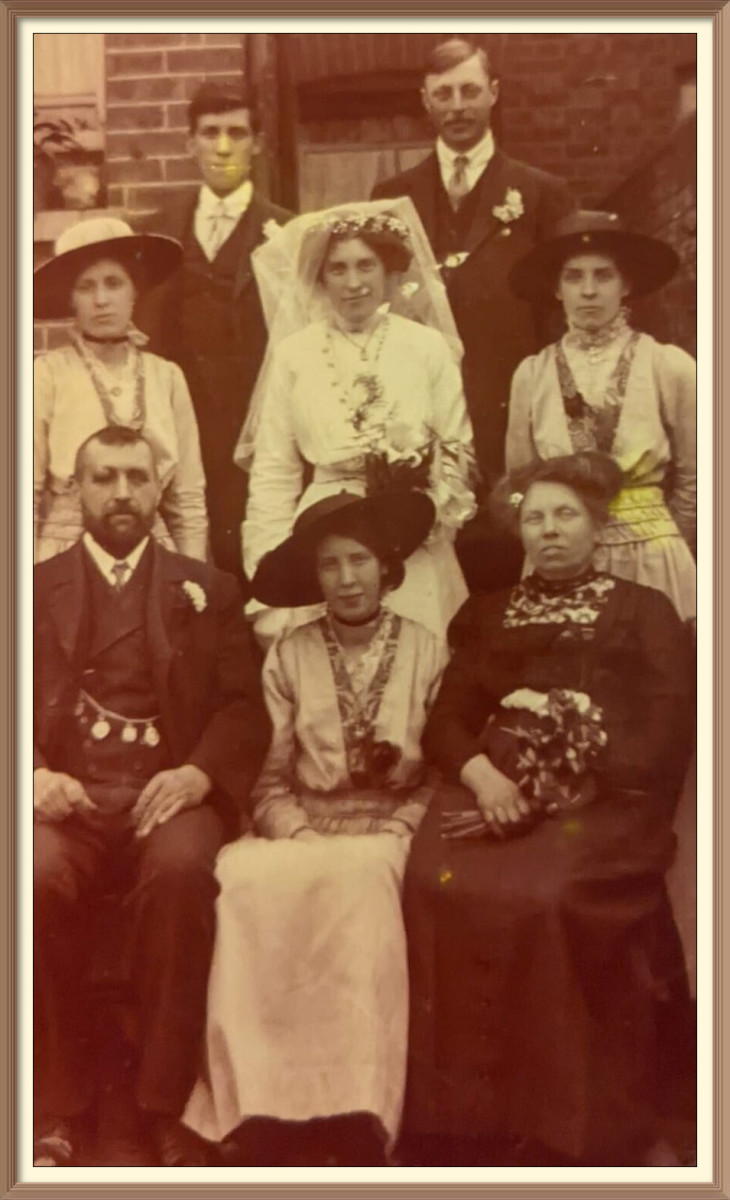Major Sources of Irish Genealogical Information - Beginning the Harvest

Start Off at Home
Before you go abroad or even outside of your home with your search, first collect and record all the first hand information you have at your disposal. Write the full names of everyone you know into your family group history on the index page under the appropriate number as explained under the Ahnentafel system. Write in all the information you have on them – birth, marriage and death dates and places.
This is most easily done by including this vital info on the cover page of each ancestors section within your binder. Once you’ve listed everyone on your index and written in their information, you’ll know where the gaps are and in what direction you need to continue. You may be lacking a good bit of information at this point, but don’t fret. Realizing the extent of your knowledge is key to having a clear concept of the road ahead.

Filling in the Gaps
After you’ve written down everything you personally know it’s time to start conferring with other family members. This can be an adventure in itself. You will find yourself meeting and spending time with relatives you haven’t seen for a log time, or even never met. This is one of the rewards of a genealogical pursuit, not only do you get to know your ancestors of the past, but you will become closer to your living relatives. Older relatives are an especially rich source of input, but keep in mind failing memories may reveal a bit of inaccurate data, so everything will have to be eventually authenticated. If nothing else, you’ll be ably entertained, a rich reward in itself.
Begin your immediate search by obtaining all of the written documentation you can get your hands on and make copies of it. Diaries, old family Bibles and scrapbooks can be invaluable and yield untold amounts of useful information. Some relatives might not want to part with valuable or precious documentation or pictures, so it is worthwhile to invest in a decent digital camera. This way you can simply photograph these things and even possibly enhance them a bit with some good software.
After you’ve exhausted your family sources it’s time to move outside. Your local library may have copies of civil registers that you can search. Civil registry in most countries didn’t begin until the nineteenth century, so what you find may only be relatively recent info. The good thing is that churches hold their own records for much longer than that, and a search of the church records that your grandparents belonged to may provide you with a connection to the next generation. When you have completed your local search, it’s time to move overseas.
Six Major Sources of Information
There are six major sources which are liable to be fruitful in yielding information about your overseas ancestors. There are other records which may also be helpful, but the main six should be scoured first. If there is information on your ancestor, there is a good chance that it will be found in these records. As it is useful in knowing what records you are searching and why, it also helps to know where to find them, how they are indexed and what information you must already possess in order to fully utilize them. With that in mind, let’s explore the first of those six major sources. - Census Reports.
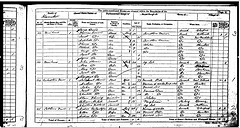
Census Returns
Modern census began in Ireland in the year 1821. At this time enumerators began calling on Irish households with a view to recording data on the inhabitants within. Their duties were to record the names, ages, occupations and the relationships of each of the inhabitants to the head of the household. Another requirement was for the property size – in acreage– to be recorded, and also how many stories each dwelling contained. It is believed that this particular census was the best ever taken in Ireland in terms of practical application. The census was used as a model for subsequent ones, and those census reports taken in Ireland between 1841 and 1871 are considered to be unrivalled in accuracy and efficiency by any other country.
Unfortunately these historical milestones from 1821, 1831, 1841 and 1851 were destroyed in the attack on the Four Courts building in 1922. This great collection had given the name and details of every man, woman and child living in Ireland in the first half of the nineteenth century, and is the saddest loss of genealogical information one is liable to encounter. Those of 1861- 1891 fared little better, many being “pulped” for the war effort between 1914 and 1918. There are fragments of these reports in existence so don’t completely discard them, you never know, you just might get lucky.
How to Find Your Ancestor in the Census Report
The 1901 and 1911 census reports are the first complete returns to survive the turmoil of Ireland’s history. These records, held in the National Archives in Dublin, provide the genealogist with a wealth of information. These later census’s followed the blueprint of their predecessors, and contained information on age, family relationships, literacy, marital status, place of origin and other miscellaneous information. They not only provide you with data, but also a glimpse of what life was like at the time.
To find your ancestor you only need to know their address at the time the census was taken. If your ancestor resided in a town you need to have his or her street address, if they lived out in the country you’ll need to know the name of their townland. If you don’t have their address, a search of birth, death and marriage records should reveal it.
The 1901 and 1911 censuses are arranged by household and list each member of the home as well as relatives, servants and even visitors who may have been present at the time the enumerator recorded the information. Details such as each members relationship to the head of the household, age, occupation, religion, literacy level, marital status, language spoken, country of birth and any physical handicaps they may have had were recorded.
Pre-1901 Irish Census records online for FREE
How to Use Census Information
The wealth of information included in census reports can be used in a variety of ways. For instance, with a person’s age you can estimate their year of birth. This is particularly helpful if they were born before 1864, as their birth would not have been entered into any birth register as yet. Use the ages found in census reports guardedly, as many of them were estimated by the enterers. A guide of ten years either way should be considered when making your own estimation.
The description of the place of dwelling and the number of occupants and servant can be used to cast light on the social and economic status of your ancestors. Thos information can be useful in helping you decide whether to look into estate records or workhouse and poor union records. The origin of birth can help you to follow the movement of your relatives through the centuries. In the case of large cities like Belfast and Dublin, this can be particularly helpful, as they grew tremendously in the late nineteenth century, and they received a large influx of people from both the countryside and overseas. An interesting requirement of married women was that they had to state how long they had been married at the time, thus the marriage date can be established and a possible marriage certificate found.
As I mentioned before, there are some surviving fragments of the earlier nineteenth century reports kept in the National Archives in Dublin and the Public Record Office in Northern Ireland. They do not contain as detailed information as the latter reports, but are definitely worth consulting, and can be especially helpful in revealing ancestors who may have emigrated from Ireland.
Summary
Finding ancestors in Irish census records can be challenging due to the damage done to them over the years. In our next article, we'll discuss an alternative source of genealogical information - Vital Records.

